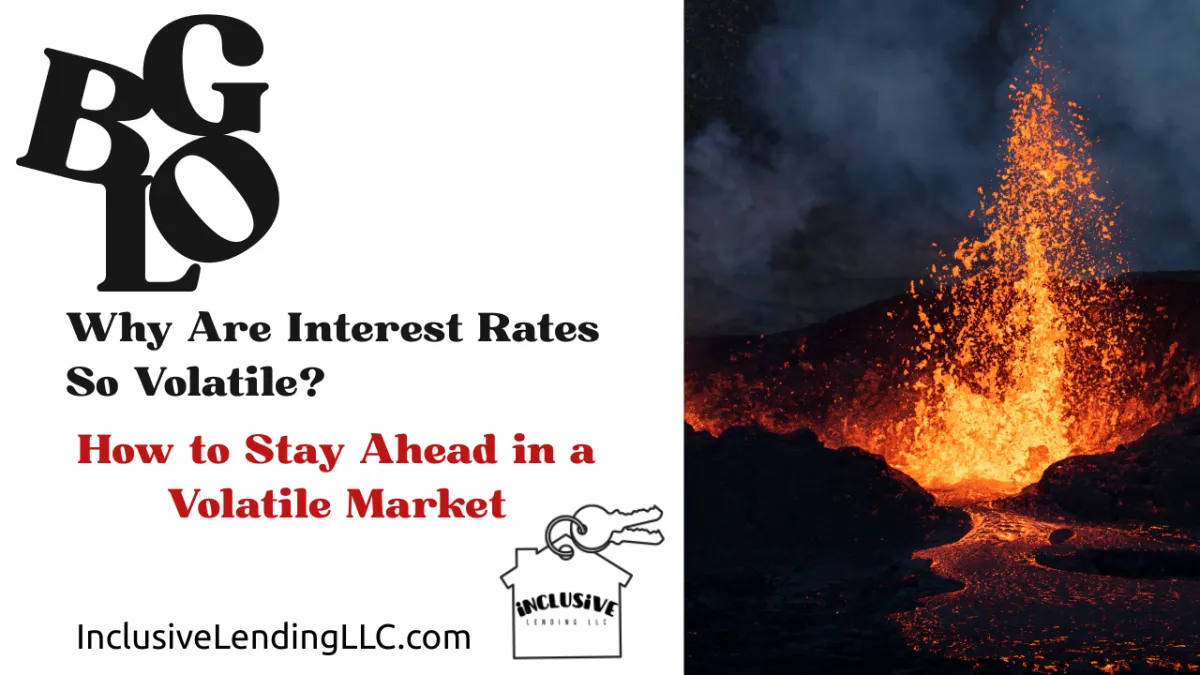
Understanding the Volatility of Interest Rates: What Homebuyers Need to Know
Why rates fluctuate—and how you can make smart decisions in an uncertain market
Over the past few years, interest rates have been on a rollercoaster ride, leaving many potential homebuyers unsure of the best time to act. One day rates dip, the next they spike—so what’s driving all this movement? And more importantly, how does it affect you if you’re planning to buy a home or refinance?
Let’s break it down.
Why Are Interest Rates So Volatile?
Mortgage interest rates are influenced by a combination of factors, including:
Inflation – When inflation is high, lenders demand higher interest rates to preserve their return on investment.
Federal Reserve Policy – The Fed doesn’t set mortgage rates directly but influences them through rate hikes and monetary policy decisions.
Economic Data – Reports on employment, GDP, and consumer spending can shift market expectations and investor behavior.
Global Events – War, pandemics, supply chain disruptions, and even elections can cause uncertainty, which impacts rates.
Investor Sentiment – Mortgage rates follow the yields on 10-year Treasury bonds. When investors feel uncertain, they often seek safer investments, influencing those yields—and your mortgage rate.
In other words, rates react to the ever-changing pulse of the economy. That’s why what seems like a small headline can have a big impact.
What This Means for Homebuyers
Volatility can be frustrating, especially when you’re trying to time your purchase. Rates could drop one week and jump the next, affecting your monthly payment and how much home you can afford.
For example:
A 1% increase in your interest rate could cost you tens of thousands of dollars over the life of your loan—not to mention hundreds more per month in your payment.
That’s why understanding how to navigate rate changes is key.
How to Stay Ahead in a Volatile Market
Here are a few smart strategies for homebuyers and refinancers:
1. Get Pre-Approved Early
Know your buying power before rates shift again. Pre-approval also strengthens your offer in competitive markets.
2. Ask About a Rate Lock
Many lenders offer rate locks to protect you while you shop. Some even offer “float-down” options if rates drop before closing.
3. Work With a Mortgage Professional
A good lender tracks the market daily and can advise you on the best time to act. We help you make sense of the noise and guide you through all the options.
4. Consider the Bigger Picture
Even with recent volatility, mortgage rates are still historically low compared to decades past. The right time to buy is when you're financially ready—not just when rates are perfect.
Bottom Line
Interest rate volatility may seem intimidating, but it doesn’t have to delay your homeownership plans. With the right guidance, planning, and tools, you can make informed decisions—no matter where rates are headed next.
Have questions about today’s rates or locking in the best option for you?
Contact us today to talk through your goals and create a plan that works—whether rates go up, down, or somewhere in between.
